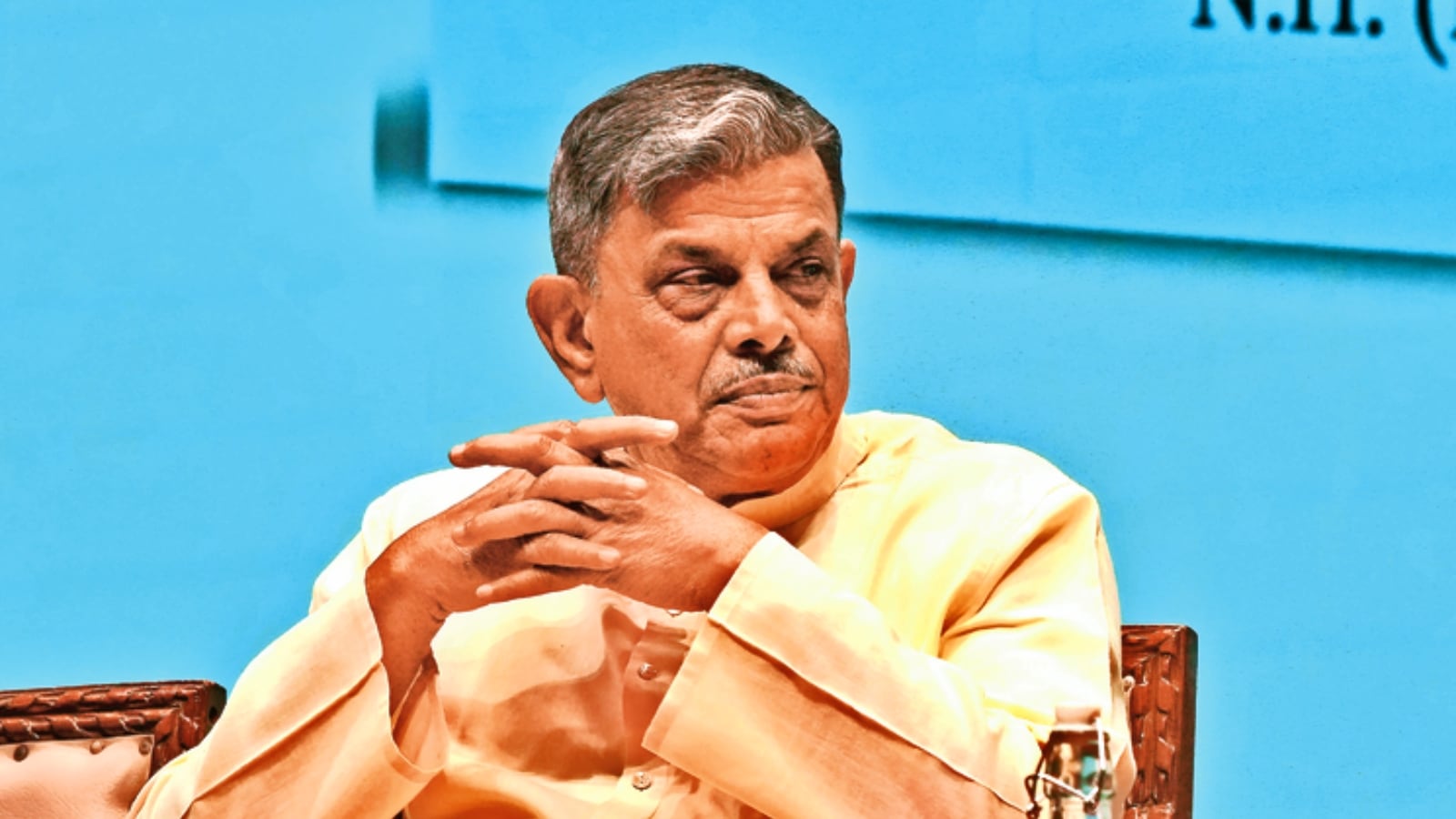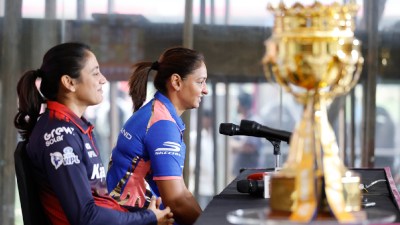Society’s support key to RSS progress: Dattatreya Hosabale
Hosabale recalled Swami Vivekananda’s words that “just as ants do not need to learn English to find sugar, my people do not need foreign tongues to recognise a noble and spiritual cause”, juxtaposing it with the RSS journey.
 RSS general secretary Dattatreya Hosabale
RSS general secretary Dattatreya Hosabale As the Rashtriya Swayamsevak Sangh (RSS) marks its centenary on October 2, ‘sarkaryavah’ (general secretary) Dattatreya Hosabale said the organisation’s growth over a hundred years had been possible because of “society’s constant support” and the sacrifices of generations of swayamsevaks.
In an article titled ‘Sangh@100 with people’s support’, Hosabale wrote: “The work of the Rashtriya Swayamsevak Sangh has now completed one hundred years. This journey was full of hard work and challenges, but the unwavering support of ordinary citizens turned it into a fulfilling one.”
He added: “The progress of the Sangh has always rested on society’s constant support. Because its work remained in tune with the spirit of the people, acceptance grew steadily over time.”
Hosabale recalled Swami Vivekananda’s words that “just as ants do not need to learn English to find sugar, my people do not need foreign tongues to recognise a noble and spiritual cause”, juxtaposing it with the RSS journey. “This statement turned out to be remarkably true. Similarly, despite the slow pace, society at large has continuously recognised and supported the Sangh’s sincere efforts,” he said.
Looking back at the Sangh’s early years, he cited the role of “young karyakartas” who, under founder K B Hedgewar’s guidance, set forth “like dedicated warriors, driven entirely by their love for the nation”. He named figures such as Appaji Joshi, Dadarav Parmarth, the Deoras brothers, Yadavrao Joshi and Eknath Ranade, who, he said, “took Sangh work as a sacred vow of lifelong service to the nation”.
Hosabale underlined the role of women and families in sustaining the organisation. “From the very beginning, Sangh karyakartas received blessings, shelter, and encouragement from ordinary families. In fact, the households of swayamsevaks themselves became the foundational centres of the work. The contribution of mothers and sisters has been critical in giving completeness to this journey,” he wrote.
He pointed to the work of the Rashtriya Sevika Samiti and leaders such as Mausiji Kelkar and Pramila Tai Medhe, who “offered a motherly strength that has been central to this mission”.
He also highlighted the Sangh’s role in creating new organisations and leaders across different spheres, mentioning Dattopant Thengadi, Yashwantrao Kelkar, Balasaheb Deshpande, Eknath Ranade, Deendayal Upadhyaya and Dadasaheb Apte. These, he said, “drew strength from the Sangh and went on to build several organisations in different walks of social life”.
Hosabale recalled key moments of mobilisation, including the 1964 formation of the Vishwa Hindu Parishad, with the “active participation of renowned spiritual leaders like Swami Chinmayananda, Master Tara Singh, Jain muni Sushil Kumar, Buddhist bhikshu Kushok Bakula, and Namdhari Sikh Guru Jagjit Singh”. He wrote that the initiative, inspired by M S Golwalkar (“Shri Guruji”), was aimed at reaffirming that “untouchability had no place in Hindu scriptures”.
Referring to the 1981 conversions of Dalits to Islam in Meenakshipuram, Tamil Nadu, he said: “A massive Hindu awakening movement followed. A conference attended by nearly half a million people was presided over by Dr Karan Singh, then a senior Congress leader.”
On the organisation’s social and political interventions, Hosabale said: “The Sangh consistently sought consensus and cooperation on matters of Hindu unity, national security, social harmony, democracy, and preservation of culture. Thousands of swayamsevaks endured unimaginable hardships, and many laid down their lives. Through all this, society’s hand of support was always there.”
He also recalled moments when the RSS faced state action. “After Independence, when political reasons led to a ban on the Sangh’s activities, it was not only ordinary people but also highly respected figures who openly stood by it, giving courage in those difficult times. The same was experienced during the Emergency,” Hosabale wrote.
Looking ahead, he said the Sangh, in its centenary year, would redouble efforts to expand its reach. “Sangh swayamsevaks will make a special effort to reach every household—across big cities, remote villages, and among all sections of society—to invite wider cooperation and participation in the mission of national service,” he wrote. “With the coordinated effort of all well-meaning forces of society, the next stage of our nation’s journey—towards holistic development—will certainly be smoother and more successful,” he said.






